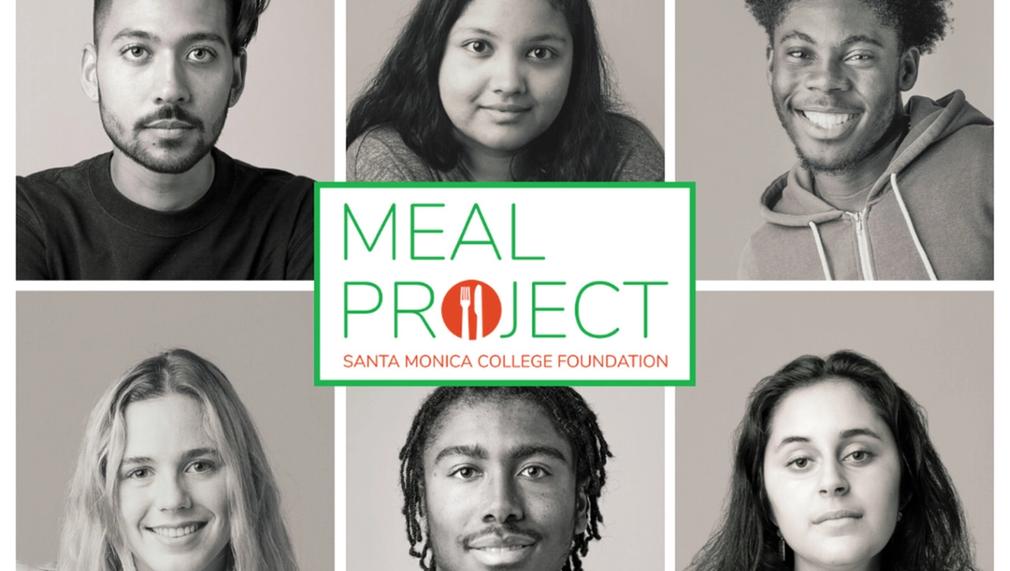Meal Project
The ability to afford food is a known barrier to low-income college students’ persistence and degree completion. Santa Monica College is stepping up to help solve this Los Angeles-wide problem made worse by the COVID-19 crisis. Ninety percent of SMC’s 31,500 students live outside of Santa Monica boundaries and 54% of SMC students have been identified as food insecure in a highly regarded 2019 research report. SMC Foundation will extend our piloted Meal Project program to provide fresh and nutritious meals free to vulnerable students.

In which areas of Los Angeles will you be directly working?
Westside
County of Los Angeles
City of Los Angeles
In what stage of innovation is this project?
Expand existing program
Please list the organizations collaborating on this proposal.
Everytable
If you are submitting a collaborative proposal, please describe the specific role of partner organizations in the project.
Everytable: A mission-driven, innovative social enterprise provides healthy meals at a variable cost to patrons dependent upon location throughout Los Angeles (mapped here: https://www.everytable.com/locations/. SMC Foundation has a signed contract in place with Everytable since September 2019. This tried and true partnership is described in a recent article: https://www.smdp.com/smc-foundation-looks-to-feed-thousands-during-pandemic/188230
Westside Food Bank: Provides 2,000 pounds of food weekly to Santa Monica College’s food pantry
Venice Family Clinic via Food Forward provides fresh produce bi-weekly
CalFresh: SMC has a dedicated professional on campus to help students with applying for SNAP (food stamps)
Department of Social Services -- casework, coordination of services
What is the need you’re responding to?
Today’s college students are at risk of not completing degrees due to the pressure to choose between food and textbooks (or rent). The markers of food insecurity are evident in Santa Monica College students: 54% are unable to purchase enough groceries, and 21% revealed they have lost weight recently because they did not have enough money for food, according to the #RealCollege Report, based on an anonymous national survey conducted by Temple University researchers. It is also well-documented that degree completion rates are higher once students are no longer food insecure.
SMC Students:
90% live outside of the Santa Monica area.
75% qualify for financial aid
73% are racially minoritized
52% are first-generation college students
SMC data: http://www.smc.edu/ACG/InstitutionalResearch/SiteAssets/Pages/Report-Respository/RC2018_SchoolReports_SantaMonicaCollege.pdf
National data: https://hope4college.com/wp-content/uploads/2019/04/HOPE_realcollege_National_report_digital.pdf
Why is this project important to the work of your organization?
SMC Foundation is well-positioned to scale the Meal Project and create a roadmap for other organizations. Launched in 2017, the SMC Foundation piloted the Meal Project providing nutritious meals to our most critically needy students. In early 2020, the Foundation opened the Everytable Lounge, a unique partnership with social enterprise, where in lieu of charging rent, the company pays in meals. Between 500-800 meals per week are distributed to food insecure students. Shortly thereafter, COVID-19 caused thousands of students to lose jobs and all classes moved to a digital learning format. SMC Foundation responded immediately and pivoted to direct-to-student home delivery services. In 2019, 54% of SMC students were food insecure. During the 2020-21 academic year, the Meal Project endeavors to serve students remotely who were previously identified as food insecure as well as students newly affected by the fallout of COVID-19 and its ongoing economic impact.
Approximately how many people will be impacted by this proposal?
Direct Impact: 3,000
Indirect Impact: 16,740
Please describe the broader impact of your proposal.
At the intersection of food security and higher education, the impact reaches far and wide – housing, employment, economic development, and health and wellbeing. Santa Monica College is investing heavily as an institution in the principals of #RealCollege, an emerging national movement that is redefining what it means to be a student-ready college, and driving changes based on the understanding that food and housing security are essential conditions of learning. SMC’s students are drawn from nearly 200 high schools in greater Los Angeles, with 90% residing across the Los Angeles County basin. As such, we see ourselves and the Meal Project as an incubator to create a roadmap benefiting other organizations and policy development.
Please explain how you will define and measure success for your project.
Food is a human right. As such, SMC Foundation envisions a future in which the possibility of food assistance will be in every prospective and new students’ scope when they dare to dream about attending college. We want all students who think they can’t participate in college due to their struggles to keep a roof over their heads and food in their stomachs to know that food access is not going to be a stressor. Free tuition and textbooks are provided to students in need through SMC’s Promise Program (free tuition and textbooks for first-time freshmen for their first two years).
Success indicators:
Increase in student responsiveness to messaging about meal programs from staff.
Increase in the number of students screened for food insecurity.*
Increase in the number of at-risk students who enroll in the free meal program.
Increase in enrollment of low-income students at SMC.
Increase in degree completion and transfer rates among low-income students.
A template and roadmap shared with and replicable by other organizations and higher education institutions. SMC was asked to present its program at the California Higher Education Basic Needs Alliance conference in February 2020.
* Due to resource limitations, students are currently identified through their participation in special programs such as Dreamers, Guardian Scholars (current and former foster youth), Veterans Resource Center, the Latino Center, Black Collegians, single parents, Center for Students with Disabilities, as such.
Which of the LEARN metrics will your submission impact?
College graduates
College matriculation
Community college completion
Are there any other LA2050 goal categories that your proposal will impact?
LA is the healthiest place to LIVE
Which of LA2050’s resources will be of the most value to you?
Access to the LA2050 community
Host public events or gatherings
Communications support